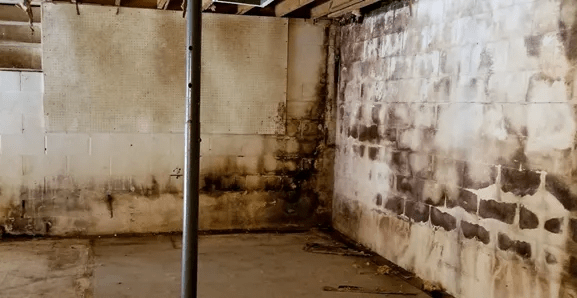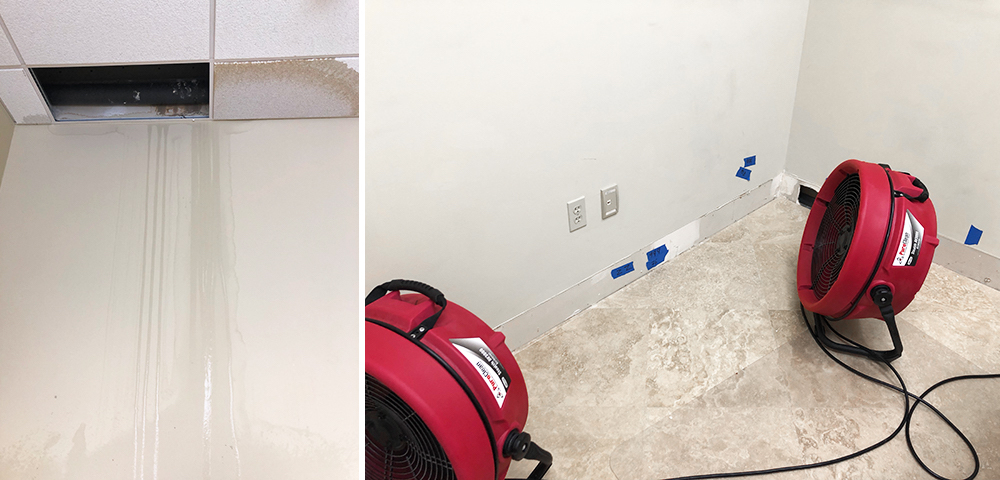Basement mold is a common issue that can affect both your property and your well-being. In this comprehensive guide, we will explore Basement Mold Removal Guidelines, offering you a detailed plan to tackle this problem effectively. From identifying mold to safe removal techniques, we’ve got you covered.
Identifying the Problem
Basement mold can go unnoticed for a long time, posing a threat to your home’s structural integrity and your family’s health. Recognizing the signs is crucial.
Signs of Basement Mold
Mold often presents itself through musty odors, visible dark spots on walls, and an increase in allergies. These red flags signal the need for action.

Basement Mold Removal Guidelines
Now that we’ve identified the issue, let’s dive into the comprehensive Basement Mold Removal Guidelines to protect your home and loved ones.
Assess the Extent of the Problem
- Begin by evaluating the size and scope of the mold issue.
- Identify areas affected by moisture or leaks.
Gather the Necessary Supplies
- Before starting the removal process, gather your protective gear and cleaning supplies.
- You’ll need items such as gloves, a mask, cleaning agents, and trash bags.
Isolate the Contaminated Area
- Seal off the affected area using plastic sheets and tape to prevent mold spores from spreading.
- Ensure proper ventilation by using fans and opening windows.
Remove Mold-Infested Materials
- Remove and discard any mold-infested materials like drywall, insulation, and carpeting.
- Ensure safe disposal in accordance with local regulations.
Clean and Disinfect
- Scrub the remaining surfaces with a mold-killing solution.
- Pay special attention to areas with visible mold growth.
Prevent Future Mold Growth
- Identify and address the root cause of moisture or leaks in your basement.
- Use dehumidifiers to maintain optimal humidity levels.
Additional Tips for Mold Removal
In addition to the Basement Mold Removal Guidelines, here are some extra tips to help you prevent mold from taking root in your basement:
Regularly Inspect for Leaks
Check for any signs of leaks or water infiltration in your basement. This includes examining the walls, floor, and ceiling for dampness, discoloration, or visible water. Address any issues promptly to prevent mold-friendly conditions.
Maintain Proper Ventilation
A well-ventilated basement is less likely to foster mold growth. Ensure your basement has good airflow by using exhaust fans, opening windows, and running dehumidifiers when needed. Circulating air helps maintain a healthy environment.
Keep Basement Dry
One of the most effective ways to prevent mold is by keeping your basement dry. Repair any leaks, cracks, or damaged insulation to avoid moisture buildup. Consider using waterproofing solutions to create a barrier against water intrusion.
Use Mold-Resistant Products
When renovating or finishing your basement, opt for mold-resistant building materials and paint. These products are designed to inhibit mold growth, adding an extra layer of protection.
Regularly Clean and Maintain
Regular cleaning and maintenance can go a long way in preventing mold. Vacuum and dust your basement frequently, paying attention to corners and hidden areas. This practice can help remove potential mold food sources and reduce the risk of infestation.
By following these additional tips, you can further protect your basement from mold and maintain a healthier living environment.
Frequently Asked Questions (FAQs)
Is basement mold dangerous?
Basement mold can be harmful, especially for individuals with allergies or respiratory issues. It can also cause structural damage to your home if left unchecked.
Can I remove mold on my own?
You can tackle small mold problems on your own, but for extensive cases, it’s best to consult professionals who specialize in mold removal.
What cleaning agents should I use?
Effective cleaning agents include a mixture of water and detergent, or a solution of vinegar and baking soda. For stubborn cases, consider using hydrogen peroxide or borax.
How can I prevent future mold growth?
Prevent mold by controlling moisture in your basement, fixing leaks, and ensuring proper ventilation. Regular inspections can help catch the issue early.
Are there health risks associated with mold exposure?
Exposure to mold can lead to various health issues, including allergies, respiratory problems, and skin irritation. It’s essential to address mold promptly.
When should I seek professional help?
If you have a large mold problem, underlying structural damage, or health concerns, it’s best to consult a professional mold removal service.
Conclusion
Basement mold can be a persistent and harmful issue. However, by following these Basement Mold Removal Guidelines and acting promptly, you can protect your home and your family’s health. Remember, early detection and prevention are key to keeping your basement mold-free. If you require professional assistance, consider reaching out to us, we specialize in mold removal and remediation.



